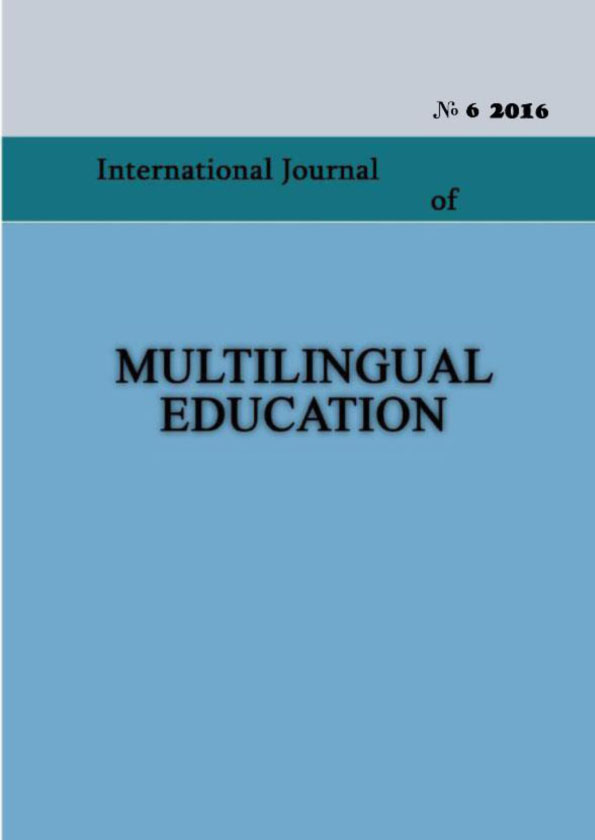Cognizable or yet not discovered Generation Z: viewpoint of comprehensive school teachers (case of Lithuania)
Keywords:
Generation Z; features of Generation Z; comprehensive school; teachers’ insightsAbstract
The aim of the article is to identify essential features of Generation Z, which are indicated by teachers of Lithuanian comprehensive schools.Research object is features of Generation Z by teachers’ approach.
The novelty of this article: features of Generation Z are highlighted by referring to insights of teachers of comprehensive schools in Lithuania.
In practice it is possible to apply the results of this qualitative research for improving education at a school as well as constructing of other research on Generation Z.
References
Canagarajah, A. S. (2007). Lingua franca English, Multilingual Communities, and Language Acquisition. Modern Language Journal, 91, 921–937.
Cross-Bystrom A. (2010). What You Need to Know about Generation Z. Interactive. Internet access: http://www.imediaconnection.com/content/27425.asp
Drussell, J. (2012). Social Networking and Interpersonal Communication and Conflict Resolution. Skills among College Freshmen. Interactive. Internet access: http://sophia.stkate.edu/cgi/viewcontent.cgi?article=1021&context=msw_papers
Falschlehner, G., (2014) Die Digitale generation.Jugendliche lesen anders.- Wiena: Verlag Carl Ueberreuter.
Ferincz. A., Hortovanyi. L., Szabo. R., Tarody. D. (2011). Changes in the Way of Work: Generation “Z” at the Labour Market. Interactive. Internet access: https://www.google.lt/?gws_rd=cr,ssl&ei=rgppVLHMEIGAzAPE0YHYCg#q=z+generation+ characteristics&start=90
Giffords, E. (2009). The Internet and Social Work: The Next Generation. Families in Society: The Journal of Contemporary Social Services, 90 (4). 413-418.
Hinduja, S. & Patchin, J. (2013). Social Influences on Cyberbullying Behaviors among Middle and High School Students. Journal of Adolescence, 31. 125-146
Kukla, A. (2000). Social Constructivism and the Philosophy of Science. New York: Routledge
McCrindle, M. Wolfinger, E. (2010). The ABC of XYZ: Understanding the Global Generation. Australia: University of New South Wales Press Ltd
Mishna, F., McLuckie, A., & Saint, M. (2009). Real-world Dangers in an Online Reality: A Qualitative Study Examining Online Relationships and Cyber Abuse. Social Work Research, 33 (2), 107-118.
Пaлфри Д ., Гассер У.(2011) Дети цифровой эры.- Москва: Эксмо.
Schneck, O. (2010). Die neue Generation Y als Herausforderung für die Diversity – Strategie an Hochschulen.- Reutlingen: Reutlingen University.
Scholz Chr. (2013) Generation Z: Willkommen in der Arbeitswelt.-[Internet access: http://download.sap.com/germany/download.epd?context=15CBA4EB14F95426F543A9AFD AC5A08074271854ABCEA849F751EBD4813127056BC5C350BE083373D1BADEEC6CD CA5C60818EA003CF85895. Reviewed: 2014 05 30 ]
Targamadzė V.(2015) . Tyrimas „Z kartos bruožai bendrojo ugdymo mokyklų pedagogų požiūriu“[Rankraštis] -Vilnius: Vilniaus universitetas.
Tulgan, B. (2013). Meet Generation Z: The Second Generation within the Giant "Millennial Cohort. Interactive. Internet access: http://rainmakerthinking.com/assets/uploads/2013/10/Gen- Z-Whitepaper.pdf
Published
How to Cite
Issue
Section
License
Copyright (c) 2015 Vilija Targamadzė, Raimonda Minkutė-Henrickson Minkutė-Henrickson

This work is licensed under a Creative Commons Attribution-NonCommercial 4.0 International License.
Copyright (c) - Authors who publish with this journal agree to the following terms: Authors retain copyright and grant the journal the right of first publication with the work simultaneously licensed under a Creative Commons Attribution-Noncommercial 4.0 International License, which allows others to share the work with an acknowledgement of the work's authorship and initial publication in this journal. Authors are permitted and encouraged to post their work online (e.g., in institutional repositories or on their personal website) prior to and during the submission process, as it can lead to productive exchanges, as well as earlier and greater citation of published work (see The Effect of Open Access). Authors may enter into separate, additional contractual arrangements for the non-exclusive distribution of the journal's published version of the work (e.g., post it to a repository or publish it in a book), with an acknowledgement of its initial publication in this journal.

